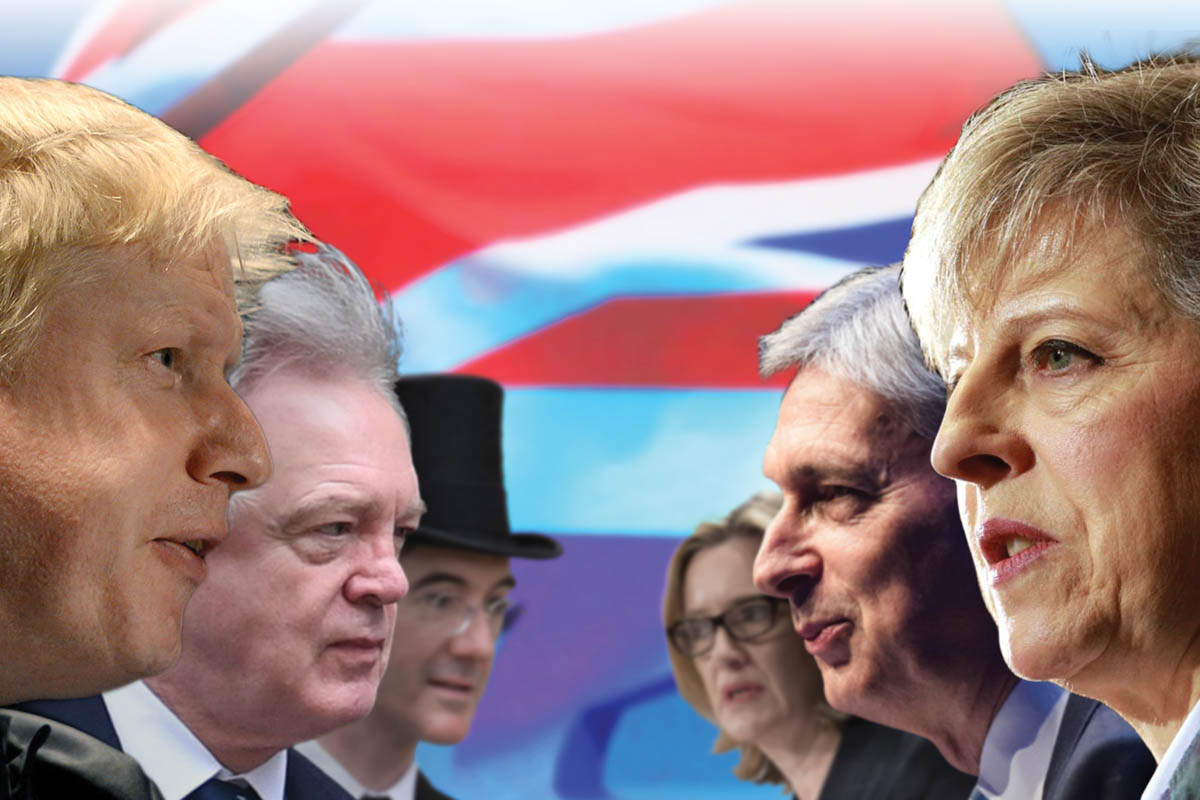News that “European business leaders” met with Theresa May earlier this month to discuss their “concerns” about Brexit should come as no surprise. The capitalists, after all, are deeply worried about the potential impact of Brexit on their profits. As Terry McPartlan explains, Theresa May is trapped between a big business rock and a hard Brexit.
News that “European business leaders” met with Theresa May on 13th November to discuss their “concerns” about Brexit should come as no surprise. After all, given the size of the British economy and its trade links with Europe – which in 2016 amounted to some 43% of total exports, or £240 billion; and, perhaps more importantly, Britain’s £320 billion of imports from Europe in 2016 – uncertainty over what Brexit will look like is a serious issue for the bosses.
Of course, for the capitalists their real “concern” is the potential impact on their profits. What happens if Britain ends up outside of the single market with tariffs imposed on European goods? What happens to multinational companies that produce parts in Europe for assembly in Britain, or vice versa?
Already there have been reports of banks and financial institutions moving staff out of the City of London. It is clear that the shape of any deal will be determined in large measure in the boardrooms in London and around the world.
Tories in disarray
In the meantime, Theresa May is trying to hold her party together. The splits and divisions between the different wings of the Tory Party are becoming increasingly difficult to paper over.
Already, in the last few weeks, two cabinet ministers have fallen. They have gone for different reasons: Fallon after allegations of sexual misconduct; and Priti Patel for allegedly “freelancing” trade talks while supposedly on holiday in Israel, during which time she apparently held 12 meetings in 13 days.
The Tories’ Brexit negotiators, meanwhile, have been made to look foolish to the extent that the BBC reported on 10th November that the chief EU negotiator, Michel Barnier, had given the UK government two weeks to clarify its ideas or make some concessions.
Between a rock and a hard Brexit
 So, as time ticks on, it’s no surprise that Theresa May is coming under increasing pressure.
So, as time ticks on, it’s no surprise that Theresa May is coming under increasing pressure.
But what does big business want? Essentially, business as usual, with the least possible disruption.
As the BBC reported following the aforementioned meeting:
Emma Marcegaglia, president of BusinessEurope, said: “Business is extremely concerned with the slow pace of negotiations and the lack of progress only one month before the decisive December European Council…Business aims to avoid a cliff edge and therefore asks for a ‘status quo-like’ transitional arrangement with the UK staying in the customs union and the single market, as this will best provide citizens and businesses with greater certainty.”
Boris Johnson and Michael Gove, meanwhile, have ramped up the pressure further on Theresa May in a leaked letter, which attempts to push her decisively towards the idea of a hard Brexit.
The letter illustrates the extent of the divisions in the cabinet and the instability inside the Tory Party. At the same time, reports indicate that some 40 Tory MPs have signed a list calling for Theresa May to resign – just eight signatures short of the number required to force a leadership election.
Under these conditions, and with the prospect of important votes in parliament on the Brexit Bill, it is evident that the pressure is mounting.
The impact on currency markets has been dramatic with the Pound falling against both the US Dollar and the Euro. In other words, the crisis in the Tory Party is directly affecting the Brexit negotiations and the economy. With a further world downturn on the horizon, the prospects for the profits of big business look bleak. Hence the “concerns”; hence the discussions.
The Brexit Titanic
It would be wrong to think, however, that this crisis in the Tory Party is something new. The conflict between the so called “eurosceptics” and pro-Europeans has been an issue in the party for decades.
David Cameron’s decision to call a referendum on Europe was an attempt to put an end to the discussion. His belief was that the outcome would be a clear victory for Remain. That reflected the view of the majority of big businesses in Britain. However, the instability in British society resulted in an unintended result on polling day.
Already the uncertainty caused by Brexit is having an impact on the economy. There is a growing crisis in the health service, with the number of EU health workers declining sharply because of uncertainty over their future. Cornish agribusinesses have complained about crops rotting in the fields as they can’t recruit enough EU workers to harvest them. This is simply the tip of the iceberg.
Fight for a socialist Europe!
But there is another side to the equation. When big business talks about maintaining the “status quo”, it is worth putting that into the context of almost a decade of austerity cuts. Workers in Britain have faced the biggest drop in real incomes of any European country, other than Greece, since the crisis of 2008.
Even the very limited workers’ rights in European law will come under threat as Brexit unravels. One way or another, the British and European bosses will demand their pound of flesh.
As Brexit unfolds, it will become increasingly clear that the only genuine defence that workers can rely upon is their own organisation and struggle.
The European (and worldwide) political and economic crisis which began in 2008 is increasingly undermining the fragile unity of the EU bosses’ club. We stand for a Socialist Britain and a Socialist United States of Europe – for the unity of the European working class and for the abolition of capitalism on a European and world scale.






